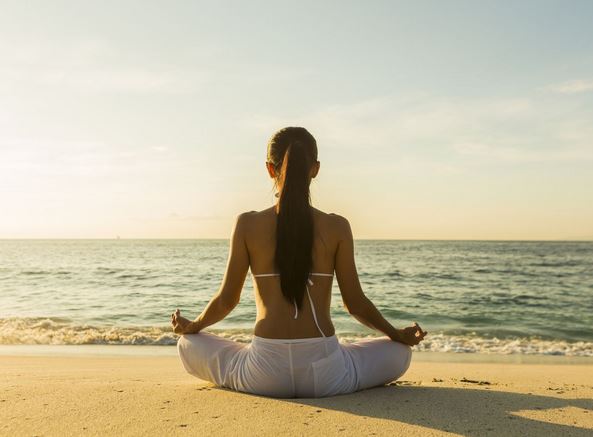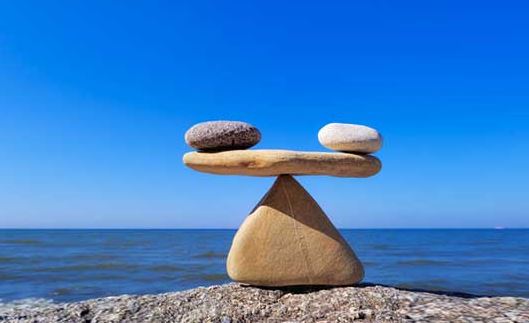A beginner's guide to meditation and mindfulness | |

| |
In today's fast-paced world, finding moments of tranquility and clarity can be a challenge. Stress, anxiety, and distractions can easily overwhelm us, leaving us feeling disconnected and exhausted. This is where meditation and mindfulness come into play. By incorporating these practices into our daily lives, we can cultivate a sense of inner peace, improve our well-being, and enhance our overall quality of life. In this beginner's guide, we will explore the foundations of meditation and mindfulness, providing you with the tools to embark on your journey towards self-discovery and inner balance. A Beginner's Guide to Meditation and MindfulnessMeditation and mindfulness are powerful practices that have been used for centuries to quiet the mind and foster a deep sense of awareness. Let's dive into the fundamentals of these practices and how they can transform your life. What is Meditation?Meditation is a technique that involves focusing the mind on a specific object, thought, or activity to achieve mental clarity and emotional calmness. It is often associated with Eastern spiritual traditions but has gained widespread popularity in the Western world due to its numerous benefits. During meditation, individuals typically find a quiet and comfortable space where they can sit or lie down. By directing their attention to the present moment and letting go of distracting thoughts, they can cultivate a state of relaxation and heightened awareness. The Benefits of MeditationMeditation offers a multitude of benefits for both the mind and body. Research has shown that regular meditation practice can reduce stress, anxiety, and depression, while also improving concentration, memory, and overall cognitive function. Additionally, meditation has been linked to enhanced emotional well-being, increased self-awareness, and improved sleep quality. Getting Started with MeditationIf you're new to meditation, it's important to start with realistic expectations. Like any skill, meditation requires practice and patience. Here are some steps to help you get started:
Understanding MindfulnessWhile meditation is a specific practice, mindfulness can be thought of as a way of life. Mindfulness involves bringing non-judgmental awareness to the present moment, fully experiencing and accepting the thoughts, emotions, and sensations that arise. How Mindfulness Enhances Well-beingBy cultivating mindfulness, individuals can develop a deeper understanding of their thoughts and emotions, leading to greater emotional resilience and self-compassion. Mindfulness has been shown to reduce rumination, improve attention and focus, and enhance overall psychological well-being. Incorporating Mindfulness into Daily LifePracticing mindfulness doesn't require sitting in meditation for hours on end. It can be integrated into your daily routine in simple yet impactful ways. Here are some suggestions:
Frequently Asked Questions (FAQs)1. Can meditation and mindfulness help reduce stress?Yes, both meditation and mindfulness have been shown to effectively reduce stress levels. By practicing these techniques, individuals can cultivate a sense of calm and relaxation, allowing them to better manage and cope with stressors in their lives. 2. How long should I meditate each day?There is no set duration that works for everyone. It's recommended to start with shorter sessions, around 5-10 minutes, and gradually increase the duration as you become more comfortable. Consistency is more important than the length of time spent meditating. 3. Can mindfulness improve my relationships?Yes, practicing mindfulness can enhance your relationships by improving your ability to be present and fully engaged with others. It can help you develop deeper empathy, active listening skills, and emotional regulation, fostering healthier and more fulfilling connections. 4. Can meditation and mindfulness help with sleep issues?Yes, meditation and mindfulness can be beneficial for improving sleep quality. By calming the mind and reducing stress, these practices create a more conducive environment for relaxation and restful sleep. Incorporating meditation or mindfulness exercises into your bedtime routine can help promote a more peaceful and rejuvenating sleep. 5. Is meditation a religious practice?While meditation has roots in various spiritual traditions, it is not inherently religious. Many people practice meditation for its secular benefits, such as stress reduction and mental clarity. Meditation can be tailored to suit individual beliefs and preferences. 6. How long does it take to experience the benefits of meditation and mindfulness?The benefits of meditation and mindfulness can be experienced both immediately and over time. After just a few minutes of meditation, individuals often report feeling more relaxed and focused. With consistent practice, long-term benefits such as improved well-being, increased self-awareness, and enhanced emotional resilience become more noticeable. ConclusionEmbarking on a journey of meditation and mindfulness can be transformative, allowing you to cultivate inner peace, clarity, and a deeper connection with yourself and the world around you. By incorporating these practices into your daily life, you can navigate the challenges with greater resilience and experience a profound sense of well-being. Start small, be patient, and enjoy the process. Remember, the path to inner peace begins with a single breath. | |
| Category: Wellness | |
| Total comments: 0 | |
 |
| Experimenting with Bold Lip Colors |
 |
| Impact of fashion on culture and society |
 |
| The Art of Updos: Elegant Hairstyles for Formal Events |
 |
| Top 5 Natural Ingredients for Strong and Shiny Hair |
 |
| How to Remove Nail Polish |
 |
| Tips for managing stress and anxiety |
 |
| Tips for achieving a healthy work-life balance |
 |
| The Best Makeup Removers for a Clean and Fresh Face |
 |
| The Art of Creating the Perfect Brows |
